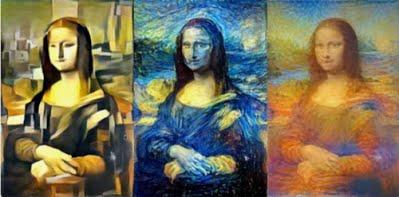Algorithms in Culture
The Thursday conference will be held at Doe Library; the Friday conference will be held in 470 Stephens.

Social Science Matrix is pleased to co-sponsor the Algorithms in Culture conference, to be held 9am-5:30pm Thursday, December 1 (in 190 Doe Library, U C Berkeley) and 9am-3:30pm Friday, December 2 (in 470 Stephens, UC Berkeley). Join the conversation on the role that algorithms play in culture, today and through history.
A slate of 30 luminaries and rising stars from around the world, including keynote speaker Helen Nissenbaum, will open up the study of algorithms beyond the traditional concerns and approaches of computer science, while still tracking the computational practices—especially around "Big Data"—that often deploy them today.
This conference is free, open to the public, and ADA-accessible. No pre-registration is required. See the schedule for details.
About Us
A foundational concept in computer science, algorithms—loosely defined as a set of rules to direct the behavior of machines or humans—have shaped infrastructures, practices, and daily lives around the world. We explore the implications of their development and deployment in politics, media, science, organizations, culture, and the construction of the self. This understanding has become ever more pressing in both academia and public discourse.
We invite social scientists, computer scientists, and humanities scholars to contribute to a growing literature that takes algorithms as an object of cultural inquiry from a social scientific and humanistic perspective, building on the success of the Governing Algorithms conference and special issue, as well as other exciting initiatives in this space.
The presenters' papers are also under consideration for one of two special issues in Representations (humanities/historical focus) and in Big Data and Society (contemporary and big data focus). Though not an exhaustive list, these questions guide this group's inquiry:
-
The multiple definitions and histories of algorithms: The term ‘algorithm’ predates the digital computer by over a thousand years, with an etymology traceable to the Islamic scholar al-Khwārizmī. How broadly might we usefully define the term today? Are contemporary algorithms a necessarily computational phenomenon? What does the explosion of discourse about ‘algorithms’ in popular culture in the last decade mean?
-
Algorithms as more than computation: What does it mean to study algorithms as myth, narrative, ideology, discourse, or power? In what ways can these approaches contribute back to concepts and questions within computer science, data science, and big data initiatives?
-
Algorithms as specifically computational: What kinds of applications and activities are now possible given certain developments in computational infrastructure and theories of computation, such as big data, deep neural networks, distributed computing, or ‘microwork’? What are the social and theoretical implications of these developments?
-
The practices and materialities of algorithms: Just as many in the interdisciplinary field of science studies advocate for a focus on the local practices and material artifacts which produce and sustain scientific knowledge, what kinds of work is done to make algorithms computable, and what are the material effects of algorithms?
-
Living with algorithms, quantifying the self: Algorithms pervade daily life and we experience their reach and impact almost anywhere, not just while working at a computer. How can we better understand how far-flung domains are being reshaped by algorithms? What are the consequences of big data and the quantified self in the everyday and in civic life?
We hope you join the conversation! Please direct questions to algorithms@morganya.org.
Coordinators
- Morgan G. Ames, Postdoctoral Scholar, CSTMS, UC Berkeley (lead coordinator)
- Gretchen Gano, Associate Director of Research, CSTMS, UC Berkeley (coordinating editor)
- Massimo Mazzotti, Director, CSTMS, UC Berkeley (coordinating editor)
- Jason Oakes (project manager)
- Jenna Burrell, Associate Professor, Information Science, UC Berkeley
- Caitlin Rosenthal, Assistant Professor, History, UC Berkeley
- David Bamman, Assistant Professor, Information Science, UC Berkeley
- Marion Fourcade, Professor, Sociology, UC Berkeley
- David Bates, Chair, Rhetoric, UC Berkeley
Sponsors
In addition to Social Science Matrix, the following organizations are co-sponsoring this event.
- UC Berkeley Institute of International Studies
- Townsend Center for the Humanities
- UC Berkeley Institute of Data Science
- UC Berkeley Center for Science, Technology, Medicine and Society
For more information, please see the conference event page.



